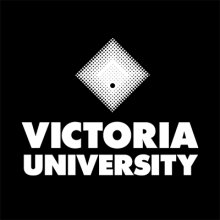Australia’s block teaching “evangelists” plan to sell their expertise to the world after achieving a global first in implementing the approach across a comprehensive research university.
Victoria University (VU) has fully embraced block teaching – in which students learn one subject at a time in blocks of a month or so, in a departure from traditional semester-based timetabling – since piloting the model for its first-year undergraduates in 2018 and rolling it out at all qualification levels over the ensuing years.
In doing so, VU helped to fuel a global trend. Block teaching has spread well beyond North America and Scandinavia, where mostly small liberal arts colleges pioneered it decades ago, to Australia, the UK, Africa and Asia.
The university has now launched the VU Block Model Academy, offering workshops and professional development for institutions thinking about following suit. From September, VU will open enrolments in two online courses developed for its own staff – a six-month graduate certificate in block teaching, and a 12-month graduate diploma – to academics across the world.
Andrew Smallridge, dean of VU’s First Year College, said block teaching had been “one of the world’s best-kept secrets” until his institution demonstrated its viability at scale and across all disciplines.
“We’re getting a lot of enquiries,” he said. “Back when we started, we would have loved to have had people that we could go to for advice or training sessions. They just weren’t available at the time.”
Professor Smallridge said that while VU hoped to raise revenue from the courses, its main aim was to share knowledge.
Its launch was announced during this year’s International Block and Intensive Learning and Teaching Association (Ibilta) conference in Melbourne. Professor Smallridge said that while Ibilta was a professional association for academics interested in block teaching, the academy was about building connections at the institutional level.
“We’ve got some professional learning programmes [and] a whole research arm…to help institutions and their staff make the step into block mode, and to guide and assist them as they take those steps. We think there’s just going to be more and more interest in this as it becomes more mainstream.”
In recent years, universities in Cape Town, Kuala Lumpur and Kunshan in China have adopted block teaching in various forms, along with two more Australian institutions and a handful in the UK. Professor Smallridge said a university in Hanoi was also showing interest.
VU said it has achieved better retention and pass rates since switching modes. External research suggests that student satisfaction has risen markedly since 2018, when the institution performed worst of all 42 Australian universities in the national Student Experience Survey.
Block teaching has not been universally embraced, attracting hostility from some students and particularly staff. “It doesn’t suit everybody,” Professor Smallridge acknowledged.
“Every institution around the world I’ve spoken to said, ‘How do you overcome the reluctance of staff who don’t want to give up on their tried-and-true – as they see it – method of teaching?’ It’s one of the challenges that all of us have faced.”
But he said many staff felt revitalised by the change – particularly those wearying of near-deserted lecture halls. “Attendance rates have gone right back up. Generally, 90 per cent of our students will be in the classroom with us.
“You are getting that immediacy, connection [and] positive feedback from the students. We all came into this because we want to help students. It’s very hard when they’re disengaged.”
Register to continue
Why register?
- Registration is free and only takes a moment
- Once registered, you can read 3 articles a month
- Sign up for our newsletter
Subscribe
Or subscribe for unlimited access to:
- Unlimited access to news, views, insights & reviews
- Digital editions
- Digital access to THE’s university and college rankings analysis
Already registered or a current subscriber? Login










